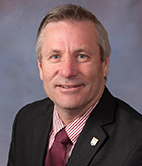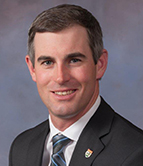January 16, 2020

The PEI public accounts committee (PAC) has found innovative—and cost free—ways to promote the non-partisan nature of the committee through their opening statement and direct communications to all members of the legislature.
What is the PAC doing?
The Prince Edward Island Standing Committee on Public Accounts opens all its meetings with the following statement of purpose and values:
“The Standing Committee on Public Accounts is dedicated to improving public administration in partnership with the Auditor General. The committee examines the administration of government policy, not the merits. The committee strives to achieve consensus in its decisions whenever possible. Members take a non-partisan approach to the work of the committee.”
"The committee also sent a letter to all 27 members of the legislature to communicate the statement of purpose and make them aware of the committee's non-partisan approach to its work." said Member of the Legislative Assembly Michele Beaton, Chair of the committee.
Why is the PAC doing this?
The committee recognized that partisanship was a risk to achieving its mandate. The opening statement is a strong reminder to committee members, witnesses and the general public that the committee needs to collaborate across party lines.
“Committee members agreed that beginning meetings with this reminder is a great way to stay focused on the committee’s purpose and to work collaboratively to improve public administration for all Islanders,” Beaton noted.
As a newly constituted committee, the PAC has been proactive in raising awareness that partisanship can ruin committee impact.
PEI PAC Members
(winter 2020)

Michele Beaton |

Karla Bernard |

Cory Deagle |

Robert Henderson |

Sidney MacEwen |

Gordon McNeilly |
PUBLIC ACCOUNTS COMMITTEE WEBSITE
Why is this important?
Prince Edward Island’s committee is currently the only one in the country to make this proclamation in its opening remarks.
PAC meetings are where important oversight work happens, but they can only be effective when they make the needs of citizens their focus. Therefore, including a reminder on the importance to collaborate across parties in the opening remarks is uniquely important to the public accounts committee. Unlike other committees, PACs do not focus on policy development. Their focus is to help make the Auditor General’s report work for citizens by looking at how policy has been implemented in the past and how to correct any deficiencies that are uncovered.
What is the impact?
As a newly constituted committee, it is difficult to directly link these efforts to a change in behaviour. However, this initiative draws specific attention to the purpose of a PAC, the need to collaborate across parties and recognizes the different role this committee plays when compared to other committees.
Why might others want to try this?
Cross-party collaboration is key to an effective PAC and beginning meetings with this statement of purpose and values is a great—and zero cost—reminder that collaboration is good for public administration, and in turn, for citizens!
CAAF observations
One of the most challenging practices for many members of a PAC is focusing exclusively on public service administration and removing a policy lens during the committee business.
CAAF Good Practices suggest that cross-party collaboration is necessary to be effective. PACs are responsible for supporting the implementation of recommendations found in Auditor General reports. These evidence-based reports are concerned with whether a policy is being applied the way the legislature intended it be, not if it was a good policy (this important question can be dealt with in other committees). When Auditors General identify deficiencies, they make recommendations to the audited organizations. PACs, as representatives of the elected legislature, not the AG, have the authority to direct management in addressing these recommendations.
A reminder of the committee’s values and communicating to all legislators about the committee’s responsibility is a great way to improve effectiveness.
Thanks for leading the way PEI!
See more Featured Oversight Practices


